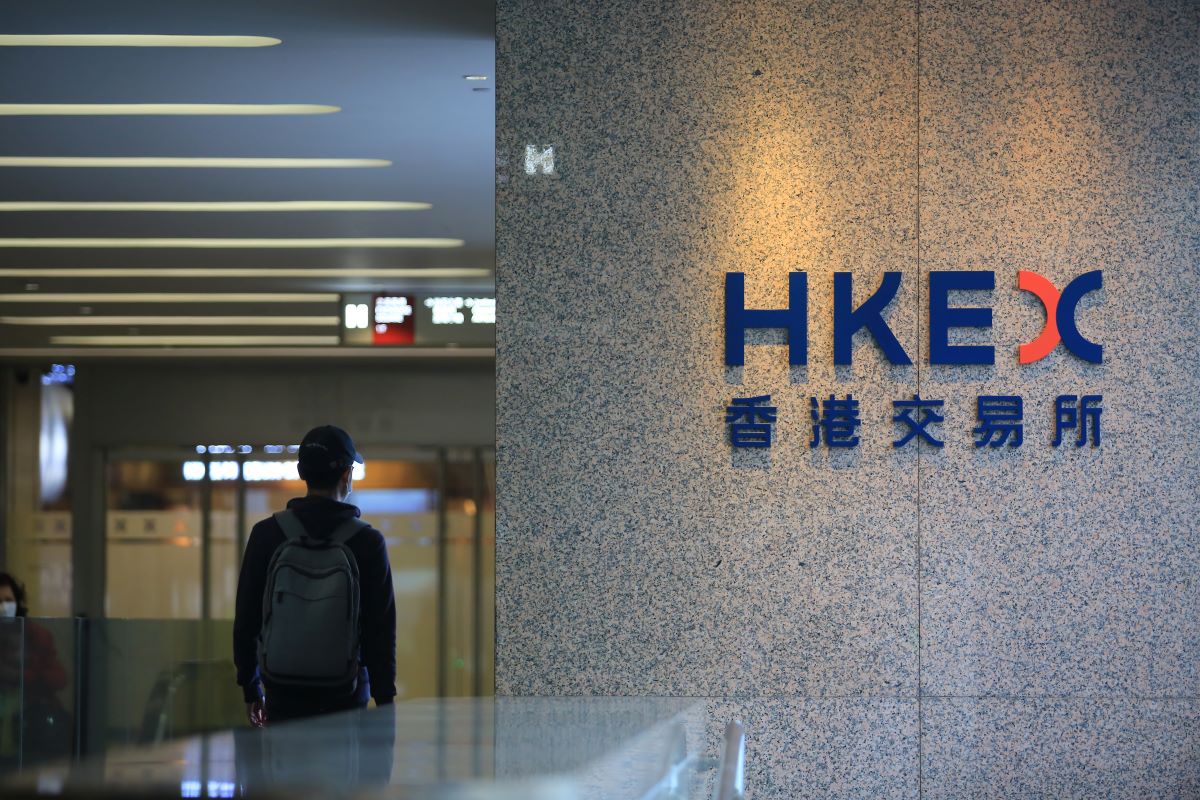Hong Kong stock exchange has been on a slide in the past few years and has lost sheen as a financing platform, plagued with weak trading volume and cheap valuations. The Covid-19 pandemic, and rising risk in China, have drastically reduced Hong Kong’s importance as the key offshore capital hub for Beijing. China is now looking to regain some of Hong Kong stock exchange’s lost footing and attract foreign investors through a series of new changes.
Hong Kong Exchanges and Clearing, the operator of Asia’s third-largest stock market, reported a market capitalization of $37.9 tn at the end of May 2022, a big drop compared to $53.3 tn during the same period last year. The average daily turnover for May 2022 was $119.4 bn, down from $153.1 bn in May 2021.
Outlook for Hong Kong stock exchange
HKEX is looking to facilitate the launch of newer financial products to affirm its role as the offshore hub for investing in mainland China. Nicolas Aguzin, CEO of HKEX, in an interview with the South China Morning Post, said that the bourse will encourage investment banks to issue products such as derivatives warrants based on the MSCI A 50 index.
Hong Kong first listed China A-shares in October, and the MSCI China A 50 index tracks the 50 largest stocks listed on Shanghai and Shenzhen exchanges. The move makes sense as MSCI China A 50 Connect (USD) Index futures are among the most popular along with Hang Seng Index futures and Tech Index futures.
Aguzin was talking about the future of HKEX during an interview with SCMP. A former JPMorgan banker, Aguzin is the first non-Chinese head of the bourse and was brought in to smoothen China’s relationship with international finance. However, the decoupling between China and the US has intensified further. Aguzin said HKEX is considering opening offices in New York and London to be closer to its clients, as well as attract foreign money.
HKEX is also the owner of the London Metal Exchange (LME), which makes London an ideal city to make a base in Europe. 43% of investors that trade on HKEX are international and based out of the city.
Separately, HKEX is planning to allow cash market traders to use multiple banks to settle transactions, reported Bloomberg citing unnamed sources. This will allow traders to hedge risks against geopolitical uncertainties.
Dwindling IPOs
While HKEX is planning to serve more clients, the Hong Kong stock exchange is marred with dwindling IPOs, with only one listing in May. PwC has dialled down its full-year IPO forecast for Hong Kong and now expects new listings to raise between HK$180 bn ($22.92 bn) and HK$200 bn ($25.48 bn), down from its January forecast of between HK$350 bn and HK$400 bn.
The new forecast means IPOs in Hong Kong will raise 40% less cash than last year. In 2022, the city has seen 22 IPOs raising $17.1 bn so far, a more than 90% drop compared to the same period last year.


 Australia
Australia China
China India
India Indonesia
Indonesia Japan
Japan Malaysia
Malaysia Philippines
Philippines Singapore
Singapore South Korea
South Korea Taiwan
Taiwan Thailand
Thailand Vietnam
Vietnam







